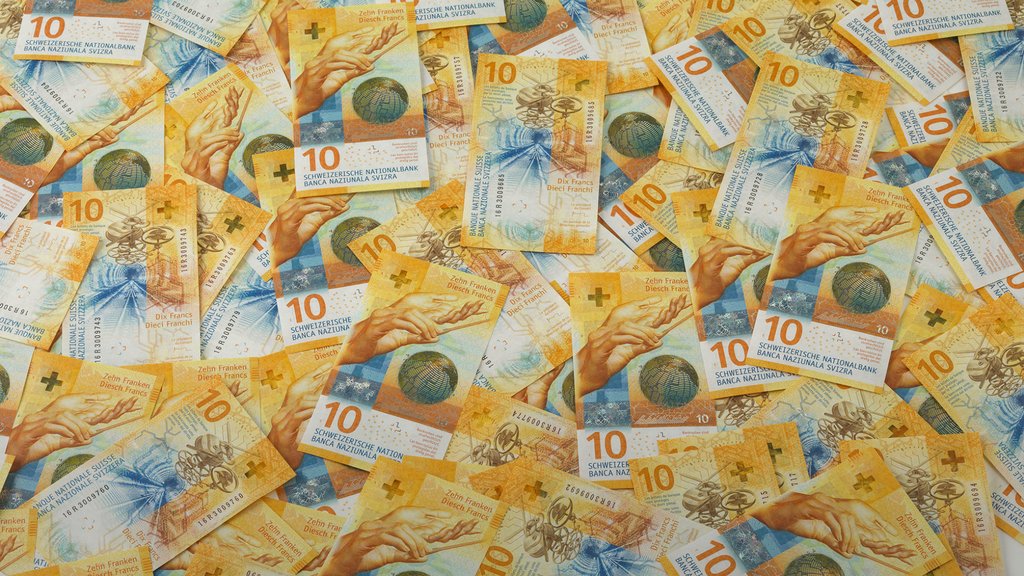Opinions - 17.10.2017 - 00:00
The new 10-franc note
Swiss people’s relationship with their cash is unique. The Swiss franc enjoys cult status. Tobias Trütsch on the euphoria about the new 10-franc note and the significance of cash in Switzerland.

17 October 2017. As early as a week before the actual launch of the new 10-franc note, the National Bank staged an extensive media conference to present the third note of the latest series to the general public. Media interest was huge: reports predominantly focused on the new design, the new format and the new security features. In addition, it was pointed out conspicuously from which institutes the new banknote would be available on 18 October 2017. Why is it that in Switzerland, the launch of a new banknote is always accompanied by so much euphoria and joyful anticipation, particularly as it is really only a means to an end?
Swiss franc enjoys cult status
Swiss people’s relationship with their cash is unique. Even today, cash payments account for roughly half the turnover of sales outlets despite alternative means of payment such as credit and debit cards. Approximately four out of five transactions are conducted in cash in this country. These are record highs in comparison with other western economies. Also, there is no banknote with a value higher than that of the 1,000-franc note, the counterfeit protection of the notes is among the comparably best, and the value of the Swiss franc is extremely stable. All in all, the Swiss franc, particularly in the form of cash, enjoys cult status.
Cash is the last remaining means of payment which translates value into physical form since it is tangible and visible. This high degree of transparency is appreciated by many consumers since it greatly facilitates people’s checks on their budgets and expenses. Additionally, cash payments are directly linked to consumption, which increases the "pain of paying" and thus dampens extensive and impulsive purchasing behaviour. Cash is also related to many positive emotions which have been generated by historically conditioned cognitive associations in the course of time and which thus stimulate the use of cash. Therefore the use of cash is often based on habits and automatisms, which are further supported by the anonymity of cash.
Popularity of cash in Switzerland
Another explanation for the great popularity of cash in Switzerland is the fact that bank cards are not universally accepted yet and that cash remains the only statutory means of payment. To avoid the unpleasant situation of having to resort to bank cards or of lacking the necessary cash in hand when they buy something, many consumers carry very high amounts of cash with them as a precautionary measure. From their point of view, the use of cash – in comparison with, say, debit and credit cards – is free of charge, which increases the volume of cash transactions, although from the perspective of the economy as a whole, cash causes high social costs (for instance through printing, distribution, storage, etc.).
Surveys show that the lower the amount to be paid, the higher the number of cash transactions; which with the smallest amounts, is also most cost-effective. In other words: the average cash purchase amounts to approx. 20 francs since it is often perishable goods rather than long-life ones that are paid for with cash, with the benefit of the former being directly linked to the purchase. The 10-franc note makes a substantial contribution to efficient purchase transactions within the range of the smallest amounts, with most of these transactions taking place in sales outlets, although the note often only serves as change.
Emotional aspects
People who have many notes with a small value (such as ten 10-franc notes) often spend more than if they have one high-value note with the same nominal value (such as one 100-franc note). This is because higher-value notes are mentally less easily exchangeable than lower ones: the possession of a 100-franc note is less quickly forgotten than that of a 10-franc note. Furthermore, smaller amounts are always preferred in banknotes rather than a slightly higher amount in coins. The 10-franc note as the smallest denomination thus neatly provides the best advantages on the threshold to the 5-franc coin.
Consequently, cash is not only a means to an end but is often linked to emotional aspects which transcend the mere exchange of goods and services, be it owing to identification with "versatile Switzerland", be it owing to an innovative product or work of art, or be it owing to a way of storing value. Cash offers a touch of freedom, of being independent within Switzerland. The launch of the three remaining note values (200-, 1,000- and 100-franc notes) will therefore again make similarly big headlines.
Tobias Trütsch is Head of the Economics Division of the Executive School of the University of St.Gallen.
photo: 10-franc notes of the 9th series / Swiss National Bank
More articles from the same category
Discover our special topics











